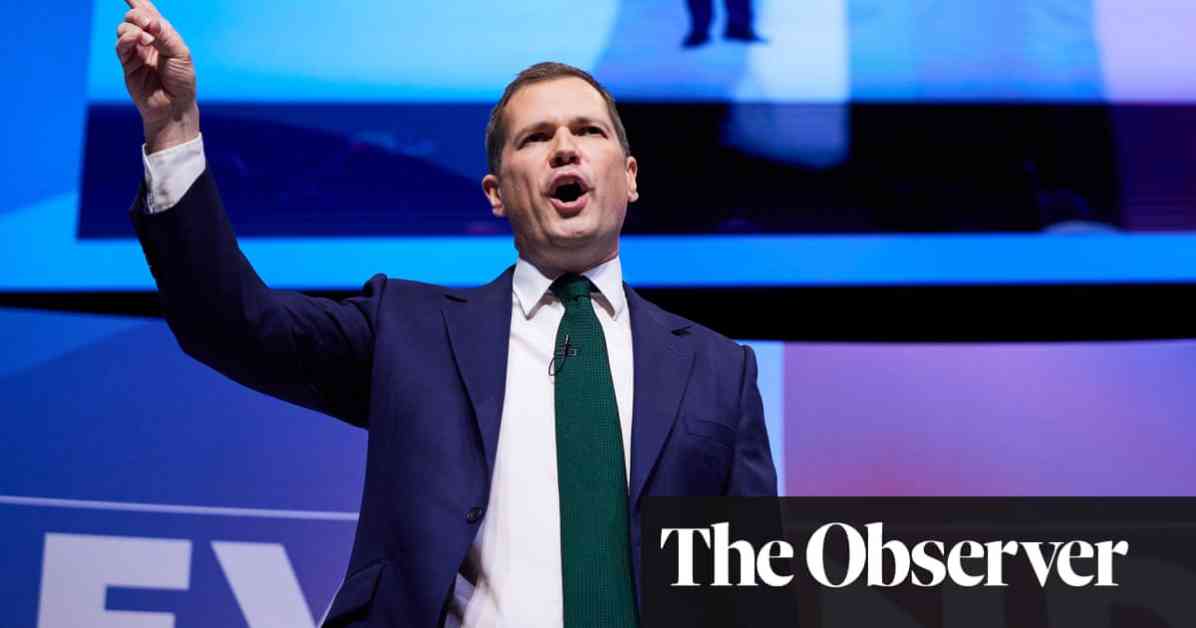Robert Jenrick, the frontrunner for the Tory party leadership, is facing warnings from senior Conservatives that he will be at the mercy of the party’s right wing if he attempts to move towards the center. Despite starting his career as a moderate MP, Jenrick has recently taken on more right-wing stances to garner support from the conservative base.
There are concerns among party figures that Jenrick may struggle to pivot back to the center once in office, as the right-wing MPs, dubbed the “Braverman right,” are expected to hold him accountable for any attempts to deviate from their agenda. Similar situations have occurred in the past, with leaders like Iain Duncan Smith failing to broaden their appeal beyond the party’s conservative base.
During the recent party conference in Birmingham, Jenrick tried to solidify his support among grassroots members by emphasizing his daughter’s middle name as Thatcher and making controversial statements like wearing a hoodie with the words “Hamas Are Terrorists.” However, there are doubts about his ability to appeal to a wider audience and gain popularity among the general public.
The latest Opinium poll for the Observer reveals that the Conservative party still struggles with public perception, with more people being aware of entertainment news like Phillip Schofield’s return to TV than the Conservative conference. Labour continues to lead in most policy areas, highlighting the challenges that the Conservative party faces in gaining broader support.
As the leadership contest progresses, candidates like James Cleverly are seen as more acceptable to the wider British public compared to Jenrick and other contenders like Tom Tugendhat and Kemi Badenoch. Cleverly’s calls for the party to be “more normal” have resonated with some voters, while Badenoch has faced criticism for her comments on maternity pay, leading to a decline in her public perception.
Overall, the Conservative party faces an uphill battle in improving its image and gaining support from the public, as voters still prefer Labour on most policy issues. The leadership contest will be a crucial moment for the party to showcase its ability to connect with a wider audience and address the concerns of the electorate. Jenrick’s ability to navigate the challenges posed by the party’s right wing while appealing to a broader base will be a key factor in determining his success as a potential leader.












